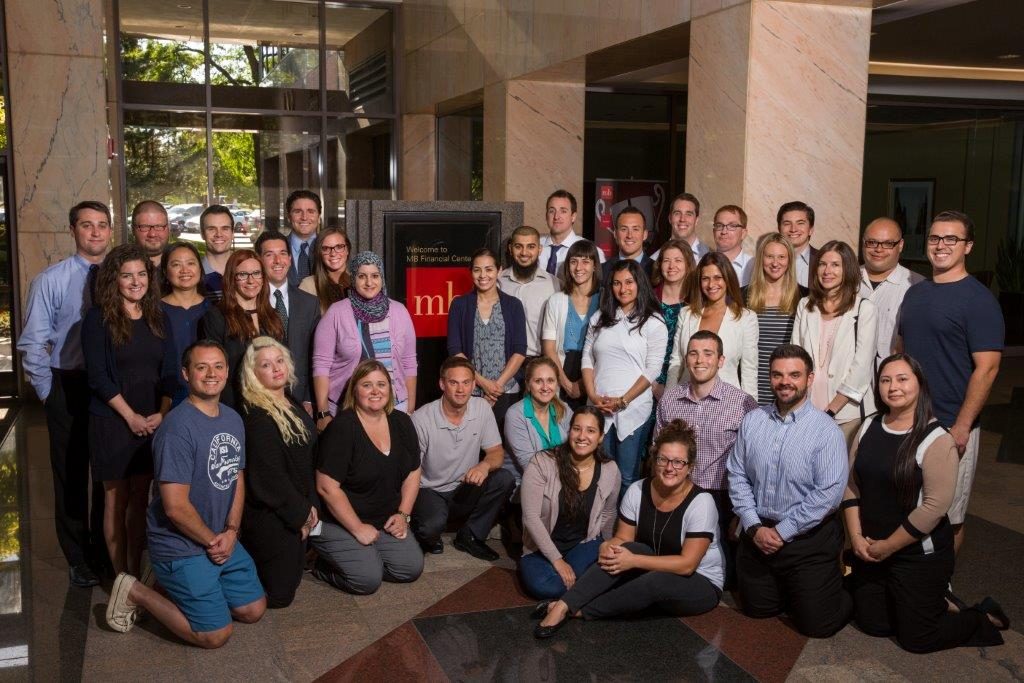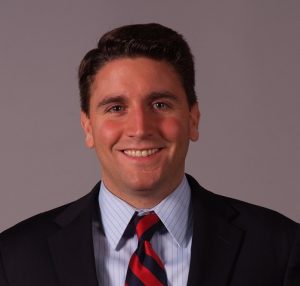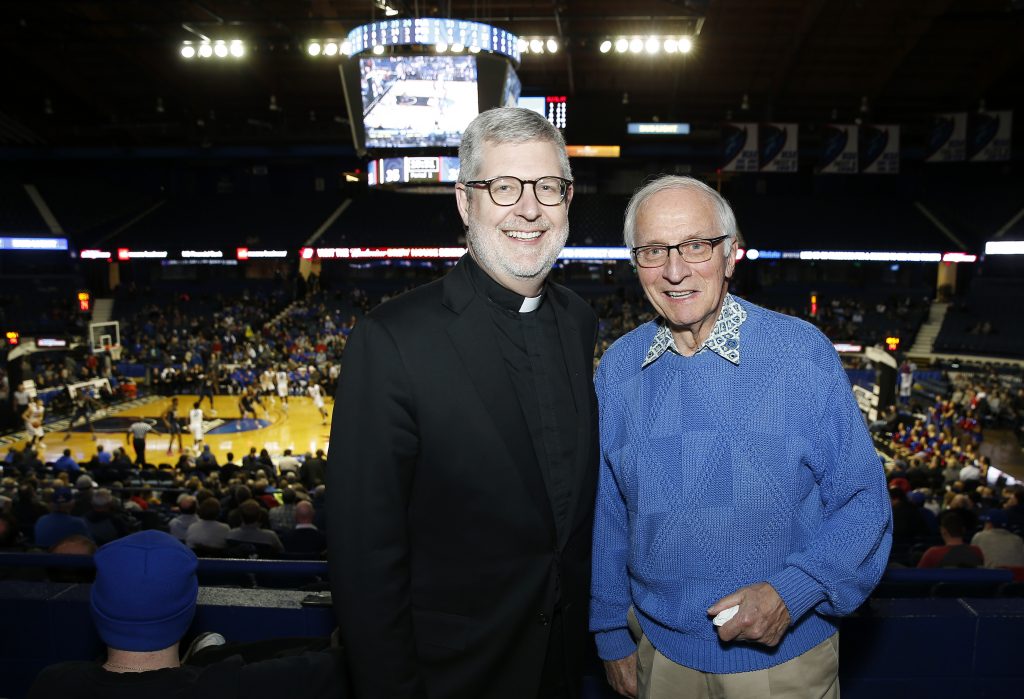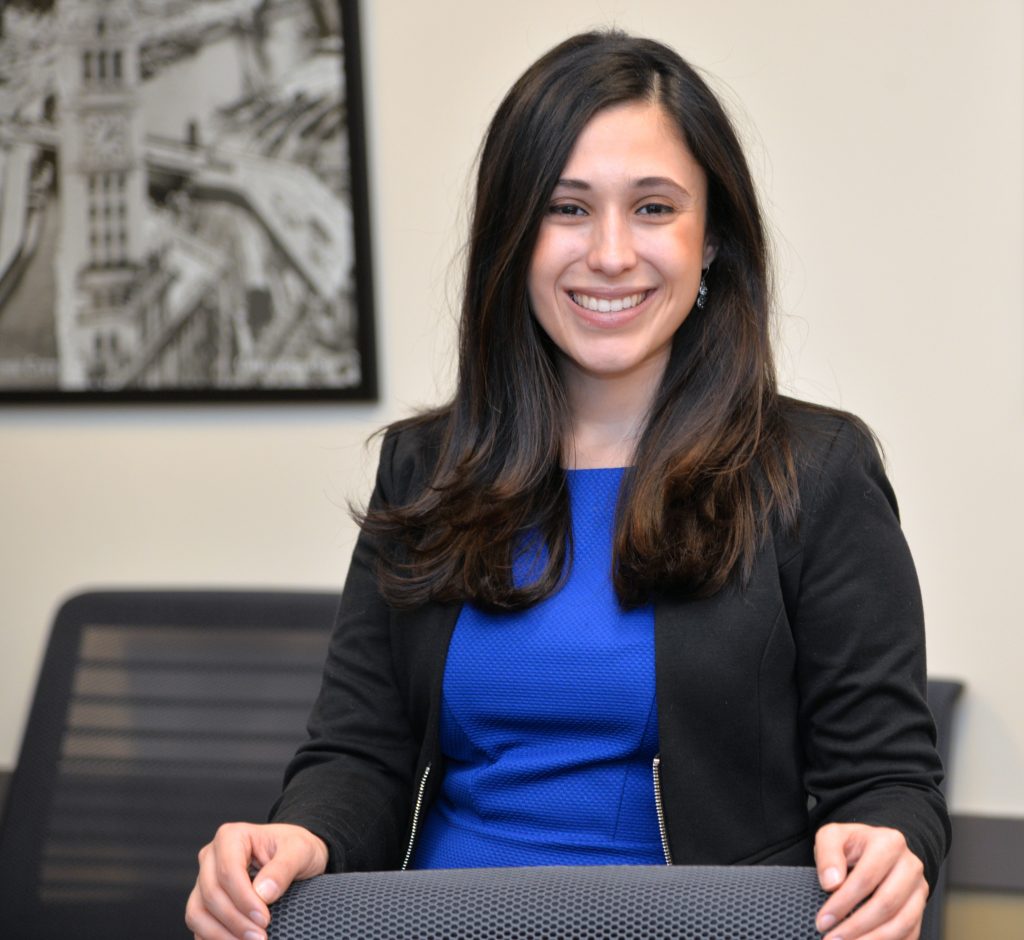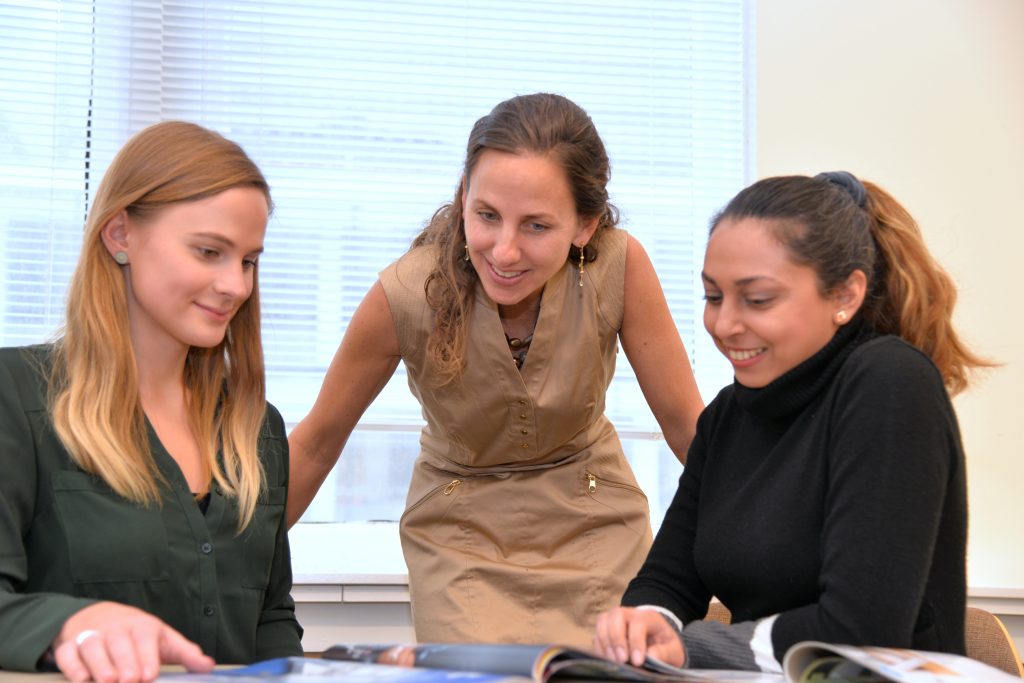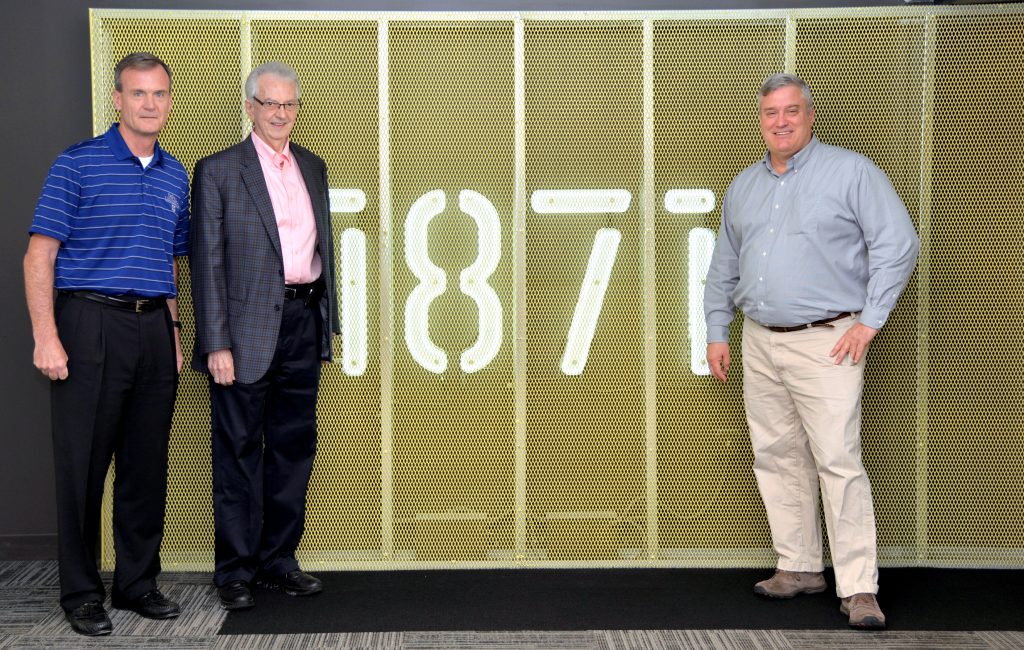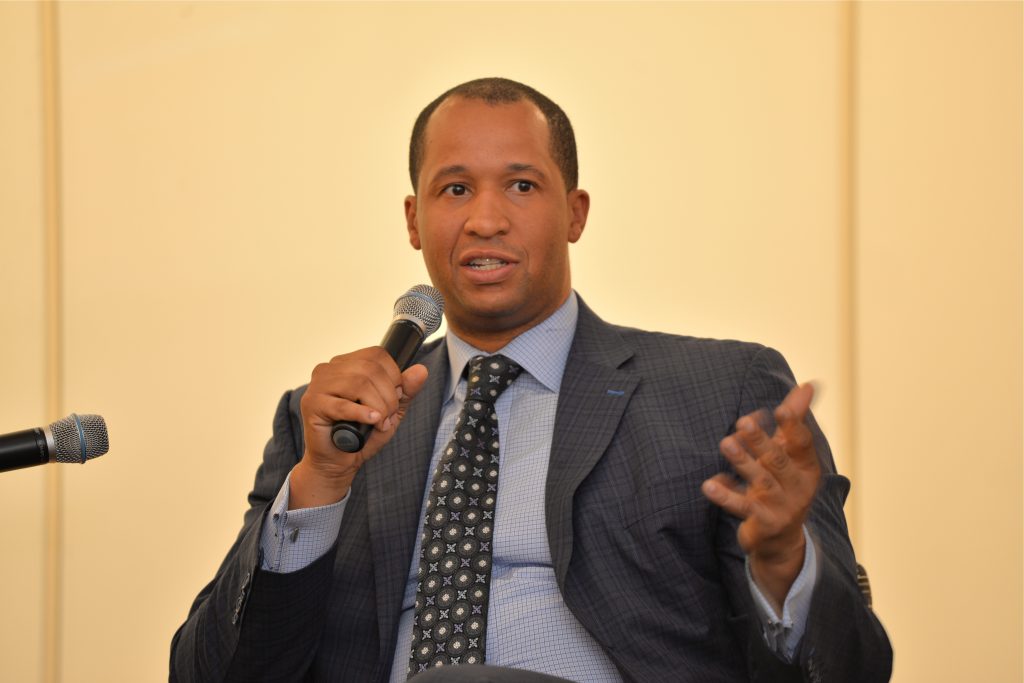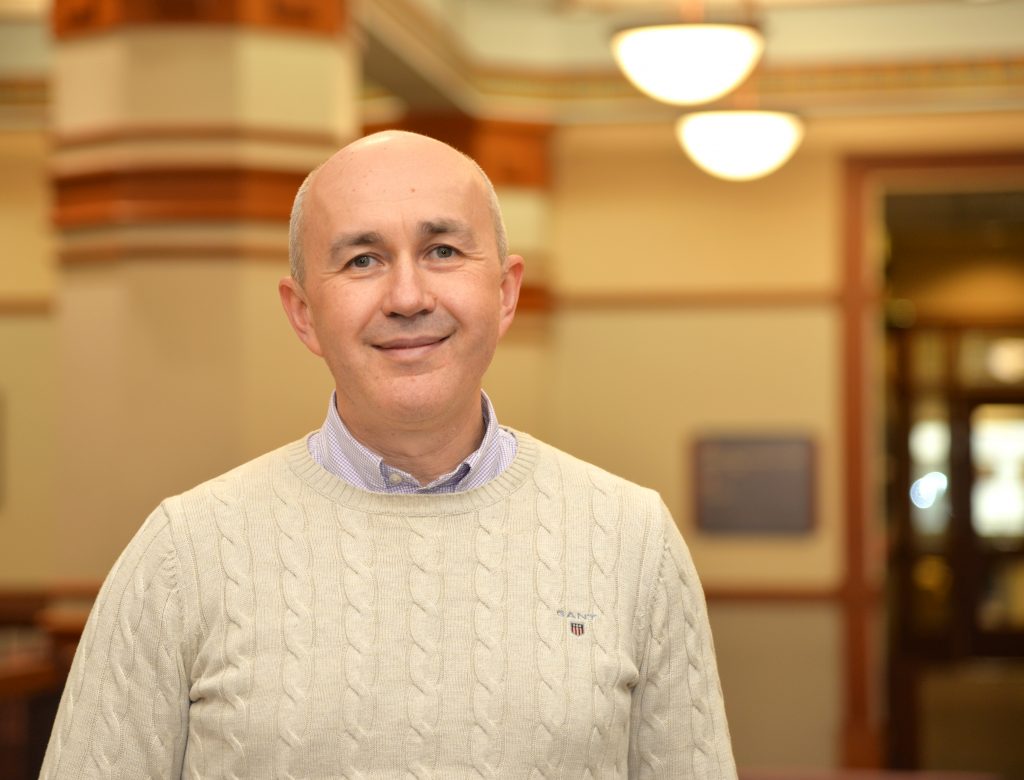
Like many DePaul business alumni, Michael Friedrich’s journey to career success began with an internship he landed while he was a student at DePaul.
Friedrich (MBA ’95) studied finance and marketing and, through DePaul’s connections to the business community, earned an internship at locally based McDonald’s Corp. This opened the door to a full-time job in the global food retailer’s finance department after graduation, which then led to a series of executive positions with McDonald’s in Europe.
Friedrich has served as financial controller for Western Division of McDonald’s Europe and chief financial officer of McDonald’s Italy, among other c-suite posts. He is currently a multiple franchisee who owns the biggest McDonald’s restaurants in and around Prague, his hometown. He also stays connected to DePaul by sharing his knowledge with current DePaul business students who visit the Czech Republic while on study abroad trips to find out about European business practices first-hand.
Below, Friedrich discusses how his experiences at DePaul prepared him for his career journey.
Why did you choose to attend DePaul’s business school?
I had a dream to study business in the United States. In 1992, when I completed my engineer master’s program at the Prague School of Economics, I started to work with MBA graduates from different business schools across the U.S. at the Entrepreneurship Center, a nonprofit organization based in Prague. We helped small businesses in the Czech Republic to prepare business plans, obtain financing and, in some cases, find strategic partners.
I learned from my colleagues and some future lifetime friends about different MBA programs and passed the required tests. Then I came across a possibility to qualify for the Dean’s International Scholarship at DePaul University. The program was administered at the time by Peter Chadraba, the DePaul professor of marketing, who was then working closely with the Prague School of Economics. And thus started a relationship with DePaul that lasts until now.
How did your DePaul business education help you with your career?
DePaul and Chicago are very influential in my life. In the MBA program, I chose a finance major with an additional emphasis on marketing, which provided me with a sound knowledge of finance, marketing, economics and accounting.
A big advantage was the fact that DePaul’s business school classrooms are located in downtown Chicago, at the heart of real business. Many of my fellow students worked a few blocks from our school. It brought a very hands-on approach to our classroom, as often we discussed business cases and situations that where happening just across the street.
At the end of my studies, thanks to DePaul, I was offered an internship at McDonald’s headquarters and thus started another long-lasting relationship. I met several DePaul alumni working at the McDonald’s headquarters and, actually, the CFO of McDonald’s Corp. and future CEO of McDonald’s were DePaul graduates as well.
Finally, I also met my wife in Chicago. We met at a McDonald’s finance training in Oak Brook and to close the circle, she also is a DePaul MBA graduate.
What advice do you have for other international students who may be considering enrolling at DePaul in Chicago?
DePaul University is a very reliable and knowledgeable partner for your studies. It has a great faculty with a lot of experience, and it has a unique location in one of the most beautiful cities in the U.S. It is a strong, large university, but at the same time very personal.
I have created a life-long relationship with the university and its faculty and also with many of my fellow students. I made friends in Chicago and also from different parts of the world while at DePaul.”
You recently met with DePaul business students studying abroad. What was the most important lesson about business that you shared with them?
We discussed how the world is getting more interconnected. Opportunities, challenges and issues that pop-up in different parts of the world become overnight our agenda, too. Constant change is part of our lives.
I personally value long, personal business relationships and consistency, and I tried to convey this message, too.
Finally, I shared one of my favorite quotes from a great Italian movie, “The Leopard.” “If we want things to stay as they are, things will have to change.”
By Robin Florzak
